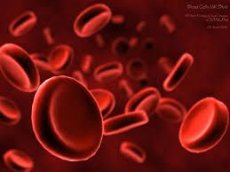New publications
Scientists will be able to fight aging with young blood
Last reviewed: 02.07.2025

All iLive content is medically reviewed or fact checked to ensure as much factual accuracy as possible.
We have strict sourcing guidelines and only link to reputable media sites, academic research institutions and, whenever possible, medically peer reviewed studies. Note that the numbers in parentheses ([1], [2], etc.) are clickable links to these studies.
If you feel that any of our content is inaccurate, out-of-date, or otherwise questionable, please select it and press Ctrl + Enter.

Scientists from the United States have stated that in the near future humans may have a chance to overcome the natural processes of aging, and perhaps even stop them. A study on rodents has shown good results, and scientists are planning to conduct trials on humans.
In their new research project, the researchers used the blood of young mice to infuse into older mice, which resulted in improved brain activity in the subjects. The scientists are now planning to test the process on humans, which could lead to new methods for combating dementia.
In their experiments, the scientists injected 1.5-year-old rodents with plasma from 3-month-old mice. The rodents that received this therapy showed improved results in memory tests, unlike mice of the same age that were not injected with plasma.
The young blood of rodents contains factors that stimulate the brain of old mice, as a result of which it begins to work as at a young age. Now scientists are trying to determine what exactly triggers the brain and what tissues are involved. At this stage, specialists cannot say for sure whether humans will have the same results, but clinical trials involving humans have already been scheduled.
The Alzheimer's Foundation says the procedure of infusing young blood does improve memory and learning in older mice, but its implications for humans remain a mystery. While the research project is interesting, it does not allow us to study the cognitive impairment that occurs in Alzheimer's disease, which develops as a result of natural aging.
However, the following studies allow us to establish how exactly young mouse blood helps improve brain function in old rodents. There is a substance in the blood of rodents that slows down the aging process in heart tissue and improves brain function. A group of researchers from Harvard University discovered mechanisms that stimulate the formation of new brain cells in old rodents after infusion of young blood, as well as restore the sense of smell. In addition, such therapy increased muscle strength in old rodents.
It is impossible to say for sure whether people will have the same results and how exactly the infusion of young blood will affect the human brain, but Scottish experts can already say that physical activity has a positive effect on the health of older people and also helps fight senile dementia. In their report, experts from Scotland noted that walking in old age is quite useful for both physical and mental health. During the research, experts determined that older people who walked daily (or several times a week) had better brain activity than their inactive peers. Scientists also noted that physical exercise is much more beneficial for the brain than for the body. In addition, physical activity showed a greater effect on improving brain performance than active social or mental work.
